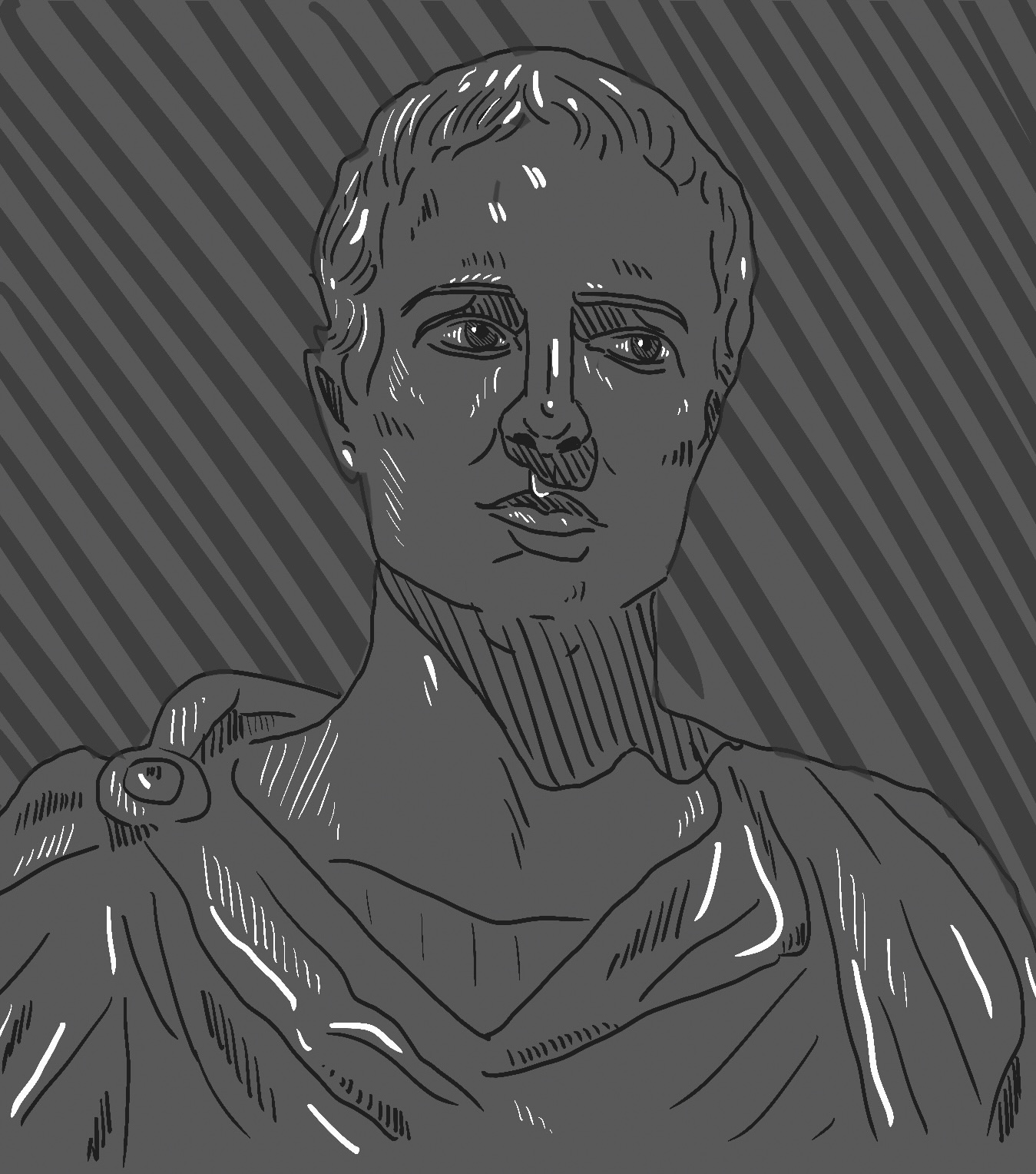Catullus: In Carmina, vita
April 11, 2025
“Catullus sits in my soul.”
I wrote that line in my journal nearly three years ago, as a first-year student at Bowdoin College. I was seventeen, away from home for the first time and longing for a kind of connection that college—at least at first—seemed unwilling to give. I was awkward, idealistic and profoundly alone.
I had come to Bowdoin expecting to major in earth and oceanographic science. There was, in my mind, a vague possibility of environmental studies, maybe even physics. Once, for a brief and unfortunate week, I flirted with English. But I was confident that my years of Latin were behind me. Classics, after all, was the realm of old, dead white men—relics of an unjust world. I told myself I was moving on to “real” and “serious” things, things that would make the world a better place. There was no room, I thought, for Roman elegy in a life devoted to the common good.
And besides, I had just broken up with my high school sweetheart. That detail may sound minor, but I assure you it’s not. Heartbreak doesn’t just empty your chest—it disorients you. It makes the future feel uninhabitable and the past feel like fiction. It drives you to look for words that say what you cannot, to find someone, somewhere, who has already felt the thing you can’t yet name. I did not yet know that I was looking for Catullus.
I told myself I would take one Latin course—just one. A farewell. A moment of closure. But in that class, I met “Carmen 101.”
“Multas per gentes et multa per aequora vectus,
advenio has miseras, frater, ad inferias…”
“Through many nations and over many seas I have come,
brother, to these wretched funeral rites…”
This was not the Catullus of dirty jokes and meter games. This was something else. Something stripped bare. Something terrifying in its tenderness. In “Carmen 101,” Catullus stands at the grave of his brother and speaks directly into the abyss. He does not flinch, does not adorn the moment with philosophical comfort or Roman stoicism. He brings with him only a small, ritual gift—and the grief of someone who knows the dead are not listening.
He speaks anyway.
His final line in that poem is one I’ve carried with me for years. I spoke it aloud at my first funeral. I whispered it while writing the hardest speech of my life. No condolence could reach where that line did.
“Atque in perpetuum, frater, ave atque vale.”
“Forever, now. My brother: Hello. And goodbye.”
There’s nothing clever in it. No silver lining. Just the weight of absence, made legible. It is the most honest line I have ever read.
When I first encountered “Carmen 101,” I realized that ancient poetry was not a relic—it was a mirror. Catullus does not interpret grief; he doesn’t try to move past it. He stands within it. That was the first time I saw loss honored with such restraint, such clarity or such mercy.
But you cannot understand “Carmen 101” unless you read the rest. The man who weeps at his brother’s grave is the same man who hurls obscene invective at senators, who writes love poems so raw they hum, who follows Lesbia like a fool, who jokes about bodily functions and sexual misadventure and betrayal with the fury of someone who feels too much and never enough.
He is not clean. He is not safe. He is a poet of unbearable contradictions: foul and devout, cruel and tender, sacred and profane.
And that is precisely why you should read him.
Read “Carmen 85:” “I hate and I love. Why I do this, perhaps you ask. I don’t know. But I feel it, and it tears me apart.”
Read the poems that compare Lesbia’s kisses to grains of sand and stars in the sky—and the ones that wish her tongue would rot.
Read the epigrams that insult rivals with language so filthy it could blister parchment.
Read the lines that obsess over betrayal and the ones that still beg for forgiveness.
Read the whole Catullus—because the wholeness is the point.
To strip away the crude is to miss the precision. To clean up the mess is to miss the mercy. Catullus is not a poet of tidy lives. He writes in blood and bile and broken faith. He tells us, again and again, what it is to feel too much in a world that gives you too little back. And sometimes he writes badly, or cheaply, or unfairly—but he never writes dishonestly.
So yes, Catullus sits in my soul. He sat there when I was seventeen, whispering Latin elegies to a boy who had not yet learned how to mourn. And he sits there still—coarser now, less romantic, but no less unflinching.
I do not read him out of nostalgia. I read him because I need him.
And I want you to read him, too, not to pass a test, or parse a meter, but to hear a voice that is not veiled in irony, not polished by time, not dulled by scholarship. I want to hear a voice that dares to speak plainly—to love, to grief, to fury, to shame. A voice that refuses to be perfect, and in doing so, becomes true.
There are fewer and fewer of those.


Comments
Before submitting a comment, please review our comment policy. Some key points from the policy: